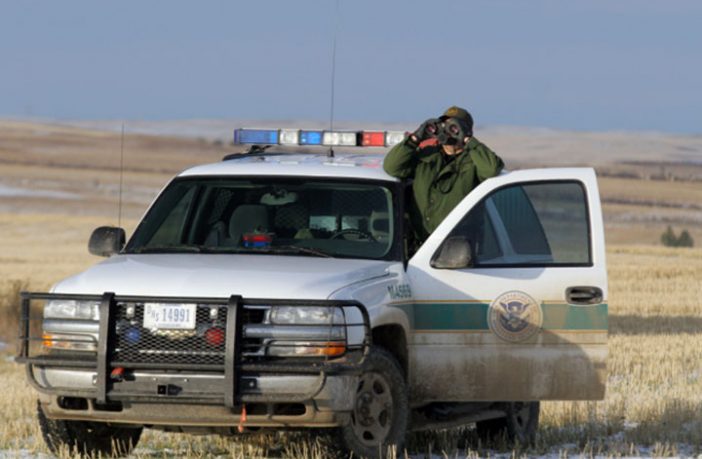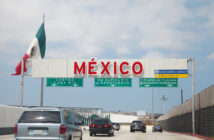Despite COVID-19 shutting down most of the country, illegal crossings, drug and human smuggling attempts are still daily occurrences for Customs and Border Patrol agents.
In just over a week, Laredo Customs and Border Patrol Agents (Texas) seized:
- 164 pounds of methamphetamine worth over $3 million that was found within a commercial trailer at the World Trade Bridge.
- 69 pounds methamphetamine worth over $1.3 million in a van intercepted at the Juarez-Lincoln Bridge after entry from Mexico.
- 902 pounds of marijuana worth $721,600 from the Rio Grande River after two individuals were seen with bundles attempting to cross the river to meet a red minivan located in a parking lot in West Laredo. In an attempt to flee, the driver drove into the river where he abandoned the vehicle and was assisted out of the water on the Mexico side by several others.
- 12 bundles of methamphetamine weighing 119 pounds with a street value of $3,824,000 from a tractor trailer at the I-35 Checkpoint.
That is a total of over $8.8 million worth of narcotics seized within just a week in Laredo, Texas.
Border security is first and foremost a federal responsibility, however, many states have had to allocate additional funding and personnel towards the effort due to the federal government failing to provide adequate resources to combat illegal activity at the southern border.
Since 2014, the Texas Department of Public Safety has allocated a substantial amount of funding in order to provide much needed resources to secure their border with Mexico. The 2017 session of the Texas Legislature dedicated $800 million to operations on the border over the next two years. The federal government has yet to acknowledge reimbursement requests for funds spent on border security, thus the fiscal responsibility falls on Texas taxpayers.
Even without additional Border Patrol Agents or help from the federal government, Texas DPS has been able to make significant impacts. From January 2014 to July 2019, DPS seized over 81 million lethal doses of fentanyl, 871 pounds of heroin, 91,418 pounds of marijuana, and 6,005 pounds of cocaine. They were also able to make 80,167 drug arrests and 901 gang-affiliated arrests.
Despite the state’s best efforts to deter and combat smuggling and other criminal activity, the unsecure border with Mexico has led to an increase in drug and human smuggling as well as gang violence. This is not an issue that is just going to go away.
The United States is currently facing one of the worst opioid crises in its history with approximately 900 people a week dying from overdoses. In May 2020, overdose deaths increased by 42 percent compared to the same month in the previous year.
This crisis is not only a burden on the economy, but also a threat to public safety as cheap heroine and synthetic methamphetamines such as fentanyl flood in through our borders by foreign cartels. Within the first month of 2020, 25,008 pounds of narcotics were seized in just the El Paso JIOC sectors of Texas and New Mexico. While the rest of the country is shut down, criminal enterprises continue to thrive under lax regulations and insufficient patrol.
The federal government must allocate proportionate resources in order to adequately address the problems at our border. The burden of additional financial responsibility to man the border should not fall on the states.




